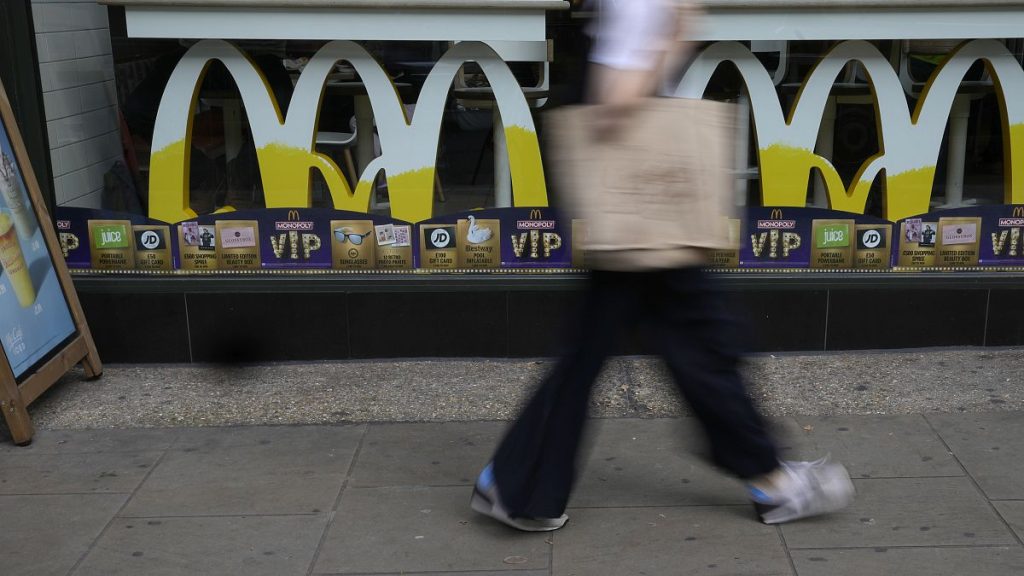In 2022, England implemented a policy aimed at addressing the country’s obesity crisis, which has reached a rate of 26.2% among adults. This initiative mandated that large cafes, restaurants, pubs, and fast-food establishments display calorie information on their menus. The rationale behind this move was grounded in the belief that raising awareness about the caloric content of food would lead consumers to make healthier dietary choices. However, a recent study published in the journal Nature Human Behaviour casts doubt on the effectiveness of this policy, revealing that the intended behavioral changes have not materialized. Researchers from the University of Liverpool and other UK institutions conducted extensive observations before and after the implementation of the calorie labeling rules and found negligible changes in consumers’ purchasing and eating habits.
The study surveyed nearly 6,600 customers across approximately 330 participating restaurants, revealing that the average calories per meal remained consistently high. After the policy was enacted, the average calories consumed per meal rose from 1,007 to 1,081. Despite the introduction of calorie labels, average meal consumption also increased slightly from 909 to 983 calories. These findings indicated that the labeling policy alone failed to motivate a significant shift in dietary behaviors across various demographics, including age, gender, ethnicity, and education levels. Experts like Tom Sanders, a nutrition and dietetics professor at King’s College London, noted that the lack of substantial change supports a broader consensus that merely informing consumers about calorie counts is insufficient to alter eating habits.
While some positive effects were noted, such as a rise in the percentage of diners who reported noticing calorie labels from 16.5% pre-policy to 31.8% post-policy, understanding and utilizing this information effectively remained limited. Most consumers tended to underestimate calorie counts even with the labels in place. Alarmingly, only 22% of customers who acknowledged the labels claimed to use them in their meal selection. Certain groups, such as older adults, women, and individuals with higher educational attainment, were more likely to notice calorie labels. This suggests a potential disparity in how different demographics respond to nutritional information, indicating that accessibility and comprehension of calorie information still pose challenges.
Critics of the policy pointed out that the calorie labeling system does not provide contextual information necessary for consumers to make informed nutritional choices. Amanda Daley, a professor of behavioral medicine at Loughborough University, highlighted that simply presenting numerical data does not equip consumers to understand what those numbers mean in terms of their overall health. Furthermore, the study acknowledged certain limitations, including the timing of the assessments soon after the policy’s introduction, which may not have allowed adequate time for consumers to adapt their behaviors. Researchers advised that more comprehensive evaluations of consumer response were necessary as time progressed.
Notably, compliance with the labeling regulations was also an issue, with about 20% of restaurants reportedly failing to comply. This non-compliance can undermine the effectiveness of the policy, reducing the overall impact on consumer choices. Additionally, some restaurants may have adjusted their menu offerings to promote healthier options indirectly as a response to the new regulations. Megan Polden, lead author of the study, emphasized the need for a multifaceted approach that includes improving compliance, educating the public on calorie intake, and enhancing label clarity to foster healthier choices within the food sector.
The challenges surrounding menu labeling in England reflect broader trends seen across Europe regarding nutritional information on food products. Various countries such as France, Belgium, and Germany have begun adopting the Nutri-Score system, which assigns a color-coded rating to food items based on their nutritional value. However, there is also considerable skepticism about such systems, particularly in countries like Italy, where agricultural sectors express opposition. Future food labeling policies may undergo significant changes depending on governmental review and public reception of such initiatives, with the UK government promising to assess the menu labeling rules by 2027. The quest for effective food labeling continues, underscoring the ongoing complexity of promoting healthier eating habits among consumers.














